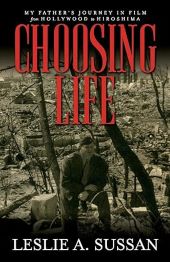Synopsis
In 1946, with the war over and Japan occupied, 2nd Lt. Herbert Sussan received a plum assignment. He would get to use his training as a cinematographer and join a Strategic Bombing Survey crew to record the results of the atomic bombings in Nagasaki and Hiroshima. From his first arrival in Nagasaki, he knew that something completely novel and appalling had happened and that he had to preserve a record of the results, especially the ongoing suffering of those affected by the bomb (known as hibakusha) even months later.
When the U.S. government decided that the gruesome footage would not be “of interest” to the American public and therefore classified it top secret, he spent decades arguing for its release. His last wish was that his ashes be scattered at ground zero in Hiroshima.
The author, his daughter, followed his footsteps in 1987, met survivors he had filmed more than 40 years before. And found that she met there a father she never really knew in life.
This book recounts Herbert Sussan’s experiences (drawn directly from an oral history he left behind), his daughter’s quest to understand what he saw in Japan, and the stories of some of the survivors with whose lives both father and daughter intersected. This nuclear legacy captures the ripples of the atomic bombing down through decades and generations.
The braided tale brings human scale and understanding to the horrors of nuclear war and the ongoing need for healing and peacemaking.






